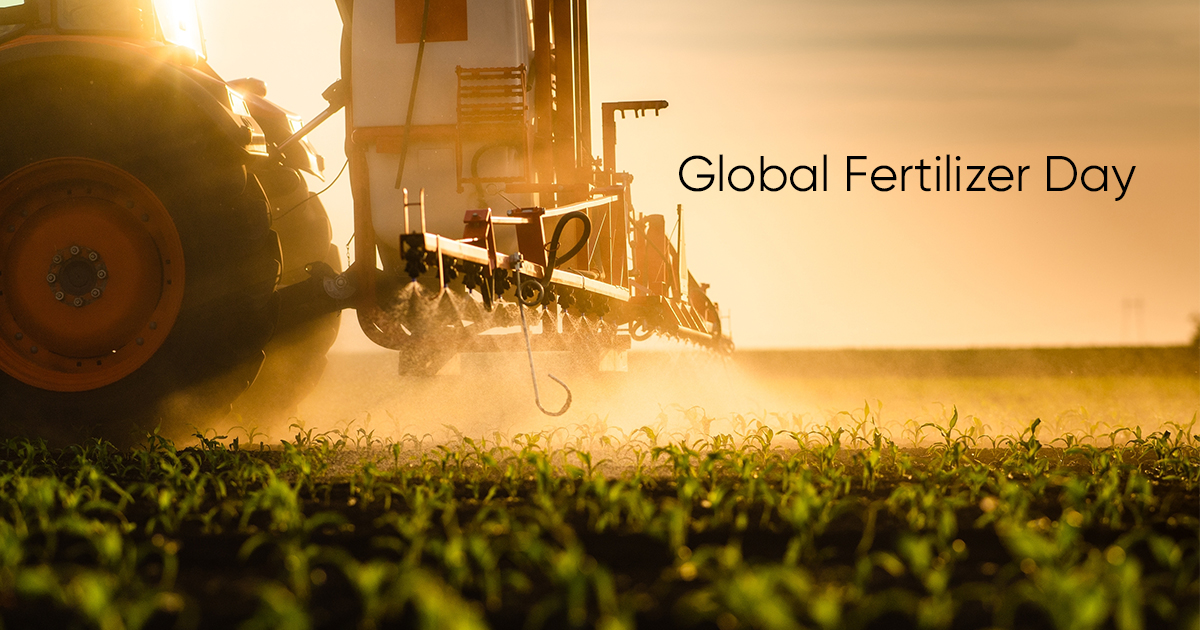Every year, October 13 is marked as Global Fertilizer Day to highlight the significance and acknowledge the contribution of the fertilizer industry in feeding the world’s growing populations.
This annual international awareness campaign is supported by fertilizer associations and companies across the world with the shared purpose of highlighting the social, economic, and environmental impact of fertilizers. Creating awareness will promote better farming practices and promote the proper use of fertilizers in the farming community.
Let’s celebrate this day by learning the following fertilizer facts:
- Fertilizers applied in the right amount at the right time can double the amount of corn produced using the same amount of water.
- Fertilizer, whether commercial or organic, helps generate organic matter in soils.
- Fertilizers help restore soil health by putting essential nutrients back into the ground after harvest.
- Fertilizer use has conserved over 2 billion acres of land from cultivation over the past 50 years.
- Good farming practices, including smart use of fertilizers, help to produce more protein-rich food.
- Well-fertilized crops produce more yield per acre. This saves fragile lands for wildlife habitat and recreational areas.
- Fertilizers improve plant health and make crops more resilient to climate change.
- Fertilizer produces plants that are strong and able to protect soils against erosion and runoff.
- More than 2 billion people suffer from micronutrient malnutrition. Micronutrient fertilizers help combat this threat to world health.
- Fertilizer is responsible for 50 percent of the world’s food production—without fertilizer we’d have only half the amount of food we do now!
Bonus Fact: U.S. fertilizer companies employ close to 90,000 people, and the fertilizer industry contributes $155 billion to the U.S. economy.
Facts provided by The Fertilizer Institute.
Related Posts

Advantages of Micro Carbon Technology®
Bio Huma Netics, Inc. products are manufactured with our exclusive, proprietary Micro Carbon Technology® which is our process of “complexing” small molecules containing carbon to nutrients. These ultra-fine molecules are excellent nutrient carriers that enable more efficient nutrient absorption. This Micro Carbon Technology® makes HUMA GRO® nutrients much more effective and efficient than any other nutrient

Let’s Talk Nutrients for a Minute
by Heather Jennings, PE Generally, in the wastewater industry we talk about 100 mg/L BOD to 5 mg/L Nitrogen to 1 mg/L Phosphorus. The values for nitrogen and phosphorus can be higher or lower than this, but it’s the average number that many wastewater system designs are built around. If you look a little further,

October 13 Is Global Fertilizer Day
Global Fertilizer Day will launch for the first time with an event in London on October 13, 2016, giving international agriculture professionals the opportunity to creatively discuss global food security and the sustainability of our future. The purpose of this day is to spread knowledge and awareness about one of farming’s most important ingredients, and


